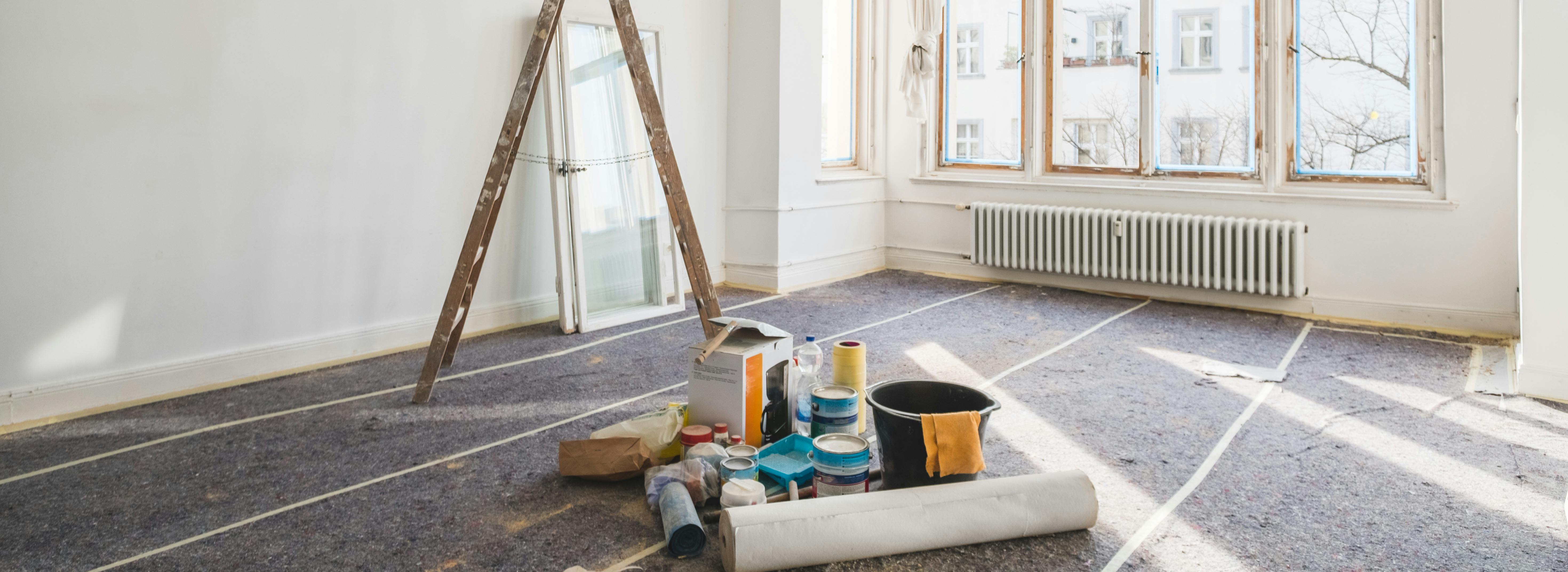
Noise issues are among the most common tenant complaints to landlords. Generally, soundproofing an apartment is not required in building codes, but tenants do have a right to "quiet enjoyment" of their rental units. Noise complaints are usually due to either noisy neighbors, lack of adequate noise barriers, or tenants who are particularly sensitive to noise. If your tenants are complaining about noise, and you feel the issue needs to be addressed, consider these suggestions for soundproofing your rental, ranging from free to more expensive.
#1: Find Out if the Tenant Making Noise is Aware of the Situation
Often tenants feel uncomfortable asking their neighbors to keep noise down, and the neighbors may have no idea that their noise is bothering anyone. If your tenants have not yet tried to address their concerns directly with their neighbors, ask them if they're comfortable doing so. Obviously, it's better to keep things friendly, and bringing in a third party (you) can sometimes complicate a situation and make the "offender" feel defensive. If your tenants have addressed the issue directly with the neighbor, and if you feel the neighbor really is being excessively noisy (e.g. stereo blasting late at night), you may need to get involved and send a letter to your loud tenant.
#2: Suggest Complaining Tenants Use Decor to Absorb Noise
Pictures, tapestries, wall hangings, throw rugs, and draperies can be helpful in addressing noise issues. A fact of apartment and multi-housing living is that tenants will inevitably hear their neighbors. Noise can be lessened to some degree by minimizing empty wall and floor space, and by using rugs, thick curtains, and wall hangings.
#3: Suggest Complaining Tenants Get a Sound Machine
Costing anywhere between $20 and $150, noise machines produce a sound much like a rushing waterfall or wind blowing, and are often used to mask private conversations in doctors offices. You can choose from white, pink, and brown noises, which vary by level of sound frequency. Read this article to learn more about and listen to the range of background noises. You can even download apps for iPhone and Android phones.
#4: Check Heat Vents & Ducts
Sound waves, like water, take the path of least resistance. Noise that travels through vents and ducts can be particularly annoying because the narrow and confined metal space can actually amplify sound. Try wrapping ducts with acoustical insulation. You can also replace ductwork near vents with lined ductwork, and install lined grilles.
#5: If Noise Comes From Footsteps in an Upstairs Unit, Install a Thick Carpet in that Unit
Often if upstairs noise is a problem, this solution can be more effective and cheaper than soundproofing the lower unit. Make sure to install a thick carpet pad as well.
#6: Use Acoustical Sealants to Seal Cracks in Existing Drywall as Well as Other Soundproofing Materials
Noise can "leak" through cracks in drywall and other soundproofing materials. Acoustical sealants, or acoustical caulk, is used to prevent sound leakage. Without sealants, drywall or other materials are less effective.
#7: Insert Fiberglass Insulation
In addition to saving on energy bills, fiberglass insulation can reduce noise because it absorbs sound waves. Be aware that foam insulation is not as effective as standard fiberglass. If the rental unit has a drop ceiling, installing insulation in the open space above the foam ceiling panels can be especially effective in reducing noise from an upper unit.
#8: Install Drywall Panels on Ceilings and Floors
Noise experts say that mass is a key factor in reducing noise. Installing drywall panels, which typically cost $9-12 for a 4-by-8 sheet, can be a very effective solution for soundproofing a room or apartment. Make sure you use acoustical sealants (see #6) to seal cracks between panels.
#9: Install a Soundproofing Layer Between Panels
While drywall can be a relatively inexpensive way to add mass for soundproofing, including an additional soundproofing layer between layers of drywall is one of the most effective actions you can take in reducing noise. Damping compounds, such as Green Glue, are relatively inexpensive and can be very effective in reducing low-frequency noise from televisions, home theaters, and stereos. Pre-damped drywall panels are also available, but they are more expensive than Green Glue. Mass loaded vinyl (MLV) is also a more expensive option. While a good source of mass, MLV is probably more effective in wrapping ducts and pipes than in using as a sound layer between panels.
#10: Install Pre-Built Windows and Doors Engineered to be Soundproof
If the noise problem is coming from outside rather than from an adjoining wall, installing soundproof windows (behind existing windows) and doors can reduce noise by about 75%.
